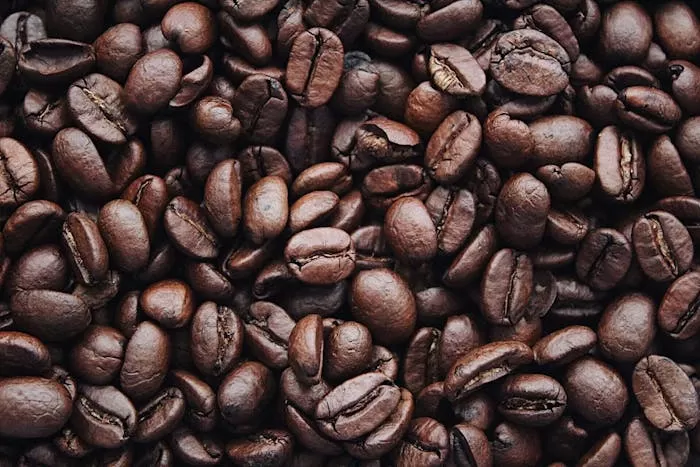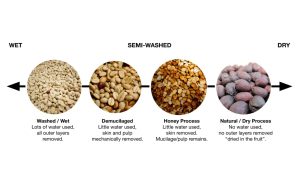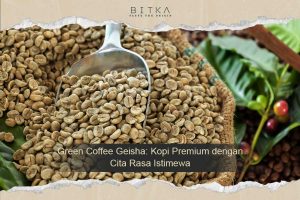Introduction
Indonesia is home to some of the most sought-after coffees in the world, but few have the rich heritage and depth of flavor as Kopi Mandailing. This coffee isn’t just a beverage; it’s a cultural treasure, deeply rooted in the history and traditions of the Mandailing people of North Sumatra. Revered for its smooth, rich taste and bold aroma, Kopi Mandailing represents the perfect blend of nature, culture, and craftsmanship. But what makes this coffee so special, and why is it considered a national treasure? Let’s dive deep into the legacy of Kopi Mandailing.
History of Kopi Mandailing
Tracing Its Roots
Kopi Mandailing’s story begins in the fertile highlands of North Sumatra. Introduced during the Dutch colonial era in the 19th century, coffee plants thrived in the region’s volcanic soil and tropical climate. The Mandailing people, indigenous to the area, quickly adopted coffee farming as part of their livelihood. Over time, coffee became more than an economic activity—it evolved into a symbol of pride and tradition for the Mandailing community.
Colonial Influence on Kopi Mandailing
During the Dutch East Indies period, the Dutch recognized the potential of Mandailing’s fertile lands for coffee production. They established plantations and introduced systematic farming methods. Although colonialism brought exploitation, it also paved the way for Mandailing coffee to gain recognition on the global stage. By the early 20th century, Kopi Mandailing was exported to Europe, earning accolades for its quality and unique flavor.
Characteristics of Kopi Mandailing
Unique Flavor Profile
Kopi Mandailing stands out for its distinctive flavor profile. The coffee boasts a full body, low acidity, and a rich, earthy taste with hints of chocolate and spices. Its aroma is equally captivating, often described as sweet and nutty. This unique combination of flavors makes it a favorite among coffee connoisseurs.
Distinct Growing Conditions
The secret behind Kopi Mandailing’s exceptional quality lies in its growing conditions. The coffee is cultivated in the highlands of Mandailing Natal, where the altitude ranges between 900 and 1,500 meters above sea level. The volcanic soil, coupled with consistent rainfall and warm tropical temperatures, creates the ideal environment for producing premium coffee beans.
Cultivation and Processing
Traditional Cultivation Methods
Mandailing farmers rely on traditional cultivation practices that have been passed down through generations. These methods emphasize natural farming techniques, such as using organic fertilizers and intercropping with other plants to maintain soil health. The result is a sustainable approach that ensures the coffee retains its unique characteristics.
Processing Techniques
One of the most distinctive aspects of Kopi Mandailing is its processing method, known as wet-hulling (giling basah). This traditional technique involves removing the coffee beans from their parchment layer while they are still wet, then drying them in the sun. This process imparts the beans with their signature earthy flavor and smooth texture.
Economic and Social Impact
Supporting Local Farmers
Coffee farming is a cornerstone of the Mandailing economy, providing livelihoods for thousands of smallholder farmers. By cultivating Kopi Mandailing, these farmers preserve their heritage while contributing to their community’s economic stability.
Kopi Mandailing in the Global Market
In recent years, the demand for specialty coffee has brought Kopi Mandailing into the international spotlight. Exported to countries like the United States, Japan, and Germany, it has become synonymous with premium-quality Indonesian coffee. However, ensuring fair trade and sustainable practices remains a crucial challenge in the global market.
Kopi Mandailing as a Cultural Icon
A Symbol of Regional Identity
Kopi Mandailing is more than just coffee; it’s a representation of the Mandailing people’s heritage and identity. Coffee ceremonies are integral to social gatherings, symbolizing hospitality and unity. Sharing a cup of Kopi Mandailing is a gesture of warmth and respect, reflecting the region’s rich cultural traditions. For the Mandailing people, coffee embodies a deep connection to their land and ancestors.
Kopi Mandailing in Indonesian Culinary Traditions
In Indonesia, coffee isn’t just a standalone beverage—it’s often paired with local delicacies. Kopi Mandailing is commonly enjoyed with traditional snacks like lapek bugi (sticky rice wrapped in banana leaves) or serabi (pancakes made from coconut milk). Its robust flavor also makes it a popular base for local coffee drinks, such as kopi tubruk and kopi susu, blending the coffee with sugar or condensed milk for a sweet and creamy treat.
Challenges and Sustainability
Environmental Challenges
Despite its global recognition, Kopi Mandailing faces numerous environmental challenges. Climate change has altered rainfall patterns and increased temperatures, impacting coffee yields. Additionally, deforestation for agricultural expansion threatens the biodiversity of the Mandailing region. Without sustainable practices, the future of Kopi Mandailing is at risk.
Sustainable Farming Initiatives
To combat these challenges, many farmers and organizations are adopting sustainable farming practices. Programs promoting organic cultivation, agroforestry, and fair trade are helping to protect the environment while supporting local communities. Some cooperatives even provide training on climate-resilient farming techniques, ensuring that Kopi Mandailing can thrive for generations to come.
Exploring Kopi Mandailing Today
Where to Experience Authentic Kopi Mandailing
If you’re looking to experience authentic Kopi Mandailing, the best place to start is its birthplace—Mandailing Natal in North Sumatra. This region is home to lush coffee plantations, where visitors can witness the cultivation and processing firsthand. Local cafes in cities like Medan also serve freshly brewed Kopi Mandailing, allowing tourists to savor its unique flavor at its source.
Promoting Kopi Mandailing Tourism
Coffee tourism is gaining popularity in Indonesia, and Mandailing Natal is no exception. Guided tours of coffee farms offer visitors a chance to learn about the cultivation process, from bean to cup. Many tours include hands-on experiences, such as roasting coffee beans and participating in traditional coffee ceremonies. This not only enriches the tourist experience but also helps local farmers generate additional income.
Conclusion
Preserving the Legacy of Kopi Mandailing
Kopi Mandailing is more than a world-class coffee; it’s a living testament to Indonesia’s rich cultural and agricultural heritage. Its unique flavor, steeped in tradition and shaped by the region’s natural beauty, makes it a treasure worth preserving. By supporting sustainable practices and celebrating its cultural significance, we can ensure that this coffee continues to thrive and inspire future generations. Whether you’re a coffee aficionado or a casual drinker, a cup of Kopi Mandailing is an invitation to experience the soul of Indonesia.
FAQs
-
What makes Kopi Mandailing unique?
Kopi Mandailing is renowned for its full body, low acidity, and earthy flavor with hints of chocolate and spices. Its unique taste comes from the region’s volcanic soil and the traditional wet-hulling process. -
Is Kopi Mandailing the same as other Indonesian coffees?
While Indonesia is known for several specialty coffees, Kopi Mandailing stands out due to its specific growing conditions and distinct flavor profile. It’s considered one of the finest coffee varieties in the world. -
How is Kopi Mandailing processed?
Kopi Mandailing uses a traditional wet-hulling method. This involves removing the beans’ parchment layer while they are still wet and drying them under the sun, resulting in its signature earthy and smooth taste. -
Can you buy Kopi Mandailing outside Indonesia?
Yes, Kopi Mandailing is available internationally, often through specialty coffee retailers. Look for labels that ensure authenticity and support fair trade practices. -
How can I support sustainable coffee farming in Indonesia?
You can support sustainable farming by purchasing Kopi Mandailing from fair trade-certified suppliers. Visiting coffee plantations and participating in coffee tourism also helps local farmers directly.








